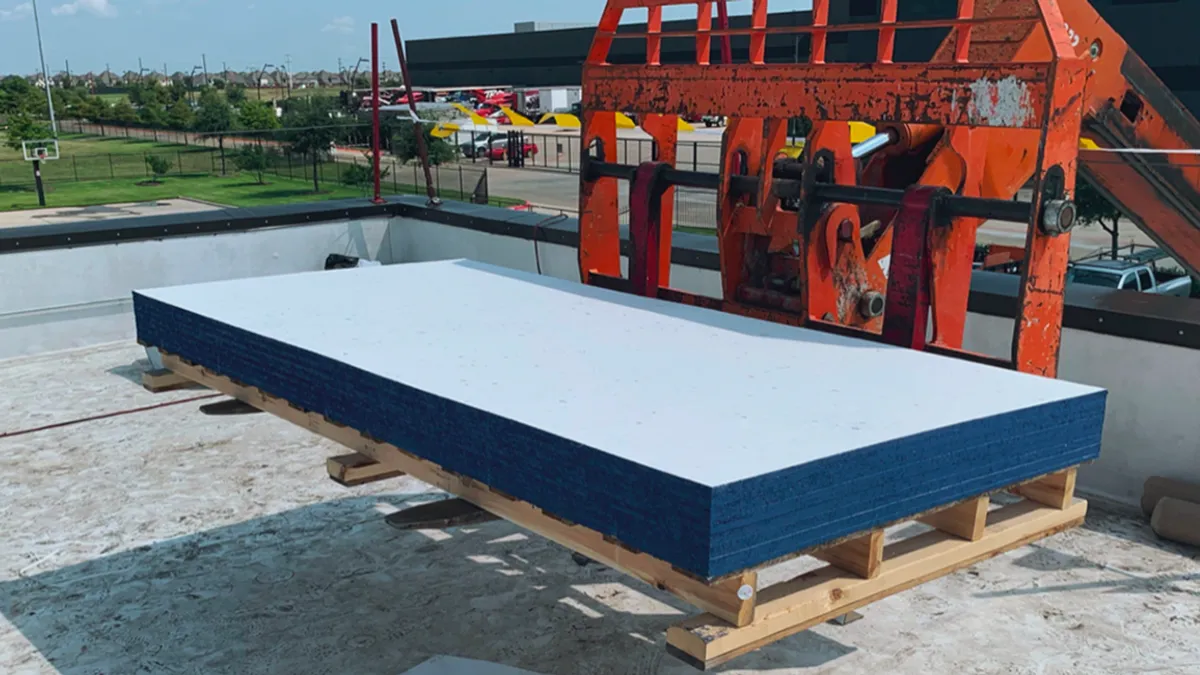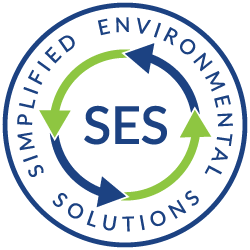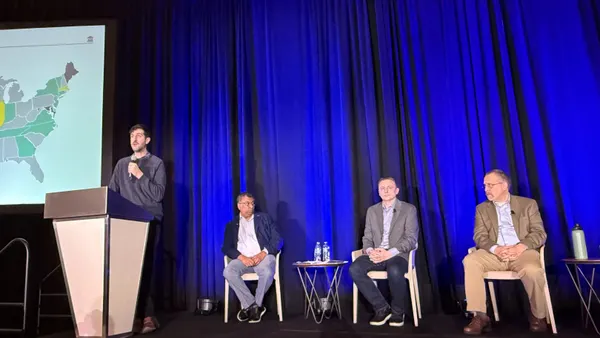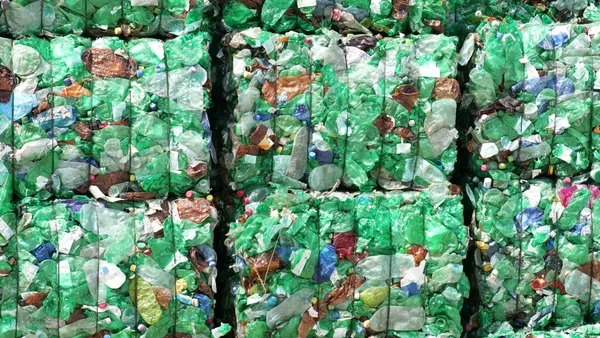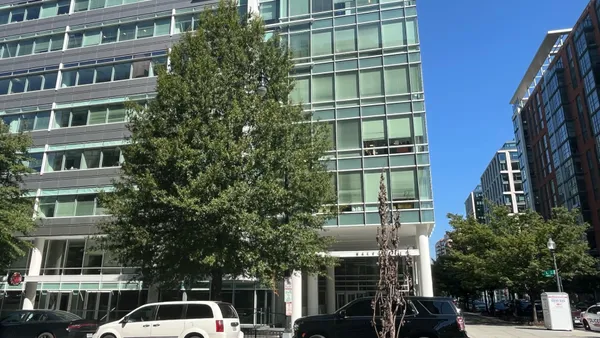Dive Brief:
- About nine months after its closure, an Iowa facility that produced Everboard, a roofing material made from recycled cartons, reopened under new ownership. It is now known as ReCB Iowa.
- The facility is now run by a joint venture between Elof Hansson USA Inc., Upcycling Group and Lisa Tech. Prior to its closure in November, the plant was operated by Continuus Materials, once backed by WM and its joint venture partner, private equity firm Tailwater Capital.
- The facility is fully operational and has the capacity to recycle about 10,000 tons of cartons a year, said Jan Rayman, managing director at ReCB. ReCB is also in the process of opening an additional Everboard facility in Lodi, California, in the coming weeks, he said.
Dive Insight:
The reopening of the Des Moines facility offers a future path for Everboard and its recycled carton supply chain, following the facility’s closure without explanation last year. The roofing coverboard product, made from a proprietary mix of paper and plastic materials including cartons and flexible packaging, was manufactured solely at that location. The Carton Council, a coalition of food and beverage packaging manufacturers, supported the project.
The facility had gone through several operators before its closure. Rayman started the company, then known as ReWall, in 2008 before Continuus took over in 2018.
In 2022, WM announced a joint venture with Tailwater to take a majority stake in Continuus and provide “financial, commercial, and operational support” to scale its production facilities.
WM “had big plans with it that would match the scale of its size and ambitions,” but the company eventually decided to focus on other business ventures, Rayman said. WM acquired medical waste company Stericycle in November, around the time Continuus closed.
Rayman, now the co-founder of manufacturing company Upcycling Group, had been in the process of opening a facility in California to serve as a competitor to Everboard when he heard about the Iowa closure.
California’s new extended producer responsibility for packaging law is driving recycled content end markets. Rayman viewed building a new facility in California as an opportunity to source cartons and film packaging in the state, in alignment with the new EPR law.
As he continued plans for that facility, Rayman and the other joint venture partners completed the ReCB acquisition in early 2025. The California and Iowa facilities will now both produce Everboard, he said.
“After we struck the deal earlier this year to take over [in Iowa], we wanted to revive and refurbish the equipment and go back into production as soon as possible so we could maintain the momentum that Everboard did have,” he said.
The Carton Council will continue to support the projects, said Executive Director Jordan Fengel in a news release. “Continued access to carton recycling is essential. We need people to keep recycling their food and beverage cartons so we can keep them out of landfills and reintegrate them into the market,” Fengel said.
The ReCB facilities also help strengthen domestic carton recycling infrastructure while underscoring “our commitment to helping develop sustainable, scalable end markets,” Fengel added.
ReCB is in the early stages of planning up to five additional facilities around the country, Rayman said. “We want to help maximize collection, because we want to be known as that go-to end market for cartons,” he said. Ideal locations would be close to paper mills that could provide his facility with the plastic residue leftover from cartons, which could be an added feedstock for Everboard products, he said.
Elof Hansson will handle Everboard’s distribution, mainly to industrial buildings, warehouses, server centers and schools, he said.
Demand for Everboard, an alternative to gypsum roofing boards, is expected to stay steady regardless of the ebbs and flows of the construction sector, Rayman said. That’s because a significant portion of Everboard’s previous business was for re-roofing projects that tend to be “resilient when it comes to economic down cycles,” he said.
This story first appeared in the Waste Dive: Recycling newsletter. Sign up for the weekly emails here.



